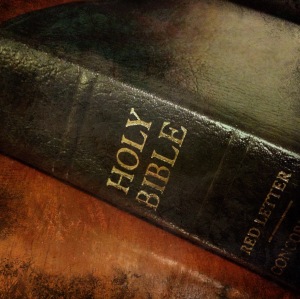Author’s Note: This is the first post in a series on James 2:18-26.
The letter of James is arguably the most controversial letter of the New Testament. Martin Luther called the letter an “epistle of straw.”[1] However, he did quote it in a more favorable tone from time to time and later on in life he did tone down his disapproval of the letter a little. Most evangelicals Christians do not like the book because of its “Lordship salvation” that it teaches. Many scholars argue that James is contradicting Paul’s teaching on justification by faith.
The intent of this post series is not to bring balance to Paul and James. By reading both positions for oneself there is no mistake that the two men actually build up and support each other’s teachings. Scholars have determined that the letter of James is the earliest of all of the epistles to be written.[2] Hence, James was unaware of Paul’s teaching on justification by faith at the time that he wrote his letter. In his letter, James puts forth a practical Christianity; a Christianity that takes into consideration whether one is truly saved.
A small detour is in order at this point in this introduction. This letter was written to Jewish believers who are the chosen of God: “[T]o the twelve tribes which are scattered abroad” (James 1:1). Looking back in the Old Testament to Deuteronomy, we see that God redeemed Israel out of slavery in Egypt (the Exodus) not because they were something special, but because of His grace:
The Lord did not set his love upon you, nor choose you, because ye were more in number than any people; for ye were the fewest of all people: But because the Lord loved you, and because he would keep the oath which he had sworn unto your fathers, hath the Lord brought you out with a mighty hand, and redeemed you out of the house of bondmen, from the hand of Pharaoh king of Egypt. (Deuteronomy 7:7-8)
His grace came first and then, as we see in Exodus, came what their response to that grace is to be, a moral response: “Now therefore, if ye will obey my voice indeed, and keep my covenant, then ye shall be a peculiar treasure unto me above all people: for all the earth is mine: And ye shall be unto me a kingdom of priests, and an holy nation.” (Exodus 19:5-6)
They were to be a missional people; a people that would facilitate God’s blessings to the nations. They were to be a priesthood in the midst of the nations; they were to showcase God before the nations. This was necessary in order for the nations to recognize that this nation Israel was truly blessed by the God of Israel. So that the nations would say truly that this is the God of the universe, the one true God, the Creator of heaven and earth.
In the same, way we are created for God’s glory (Isaiah 43:7) and we were saved to showcase his glory in front of the nations (1 Corinthians 6:20). This is the practical Christianity that James is writing about to Jewish believers. James is a practical letter to Christians who need to hear what he has to say about a faith that without works is dead.
This post series will look at James 2:18-26 and what James means between faith and works beginning with the historical and cultural context, moving to the analysis of the text, and then ending with an application and conclusion section. This will be accomplished in a short series of posts. Tomorrow we will look at the context of James 2:18-26.
[1] Thomas D. Lea and David Alan Black, The New Testament: Its Background and Message, 2nd ed. (Nashville, Tenn.: Broadman & Holman Publishers, ©2003), 516.
[2] John MacArthur “Faith according to the apostle James.” Journal of the Evangelical Theological Society (March 1, 1990): 16.



Reblogged this on Talmidimblogging.